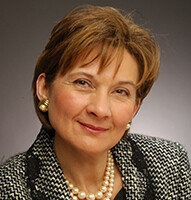Bipolar disorder in children
Bipolar disorder in children is a mental health condition where patients may have periods of high energy and hyperactivity, followed by periods of sadness and depression. Since bipolar disorder is rare in children, the experts at Children’s Health℠ carefully evaluate your child to make sure we know what’s causing your child’s symptoms and to give them an accurate diagnosis. Then our team can create a custom treatment plan to keep your child happy and healthy as they grow up.
What is bipolar disorder in children?
Extreme mood changes can be very disruptive in your child’s life. Your child might be so restless that they engage in reckless behaviors or have a hard time concentrating on schoolwork. They may have periods of low energy, when they’re not interested in any activities.
Bipolar disorder (formerly called manic-depressive illness or manic depression) is a mental health condition, often with two phases:
Mania - During manic phases, children may have high energy, and may be impulsive, irritable and have a hard time sleeping or focusing.
Depression - During times of depressive symptoms, children can experience sadness, a lack of motivation and low energy.
What are the different types of bipolar disorders?
Children and teens may experience one of two types of bipolar disorder:
Bipolar type 1 - With bipolar type 1, your child experiences both extreme highs (like not being able to sleep for days) and lows (like refusing to eat or feeling very tired).
Bipolar type 2 - Children with bipolar type 2 only experience the depression phase, without the manic phase.
What are the signs and symptoms of bipolar disorders in children?
Childhood and adolescence are emotion-filled times in any child’s life. But pediatric bipolar disorder is more extreme than typical mood swings. Children with this condition may have the following symptoms and behaviors.
Extreme highs
Feeling overly confident
Engaging in risky behavior
Speaking quickly
Not being able to sleep for days
Increased irritability
Trouble concentrating
Extreme lows
How is bipolar disorder in children diagnosed?
If your child’s doctor suspects bipolar disorder, they may:
Ask you and your child about recent moods, sleeping patterns, energy and overall behavior
Ask about mental illness or substance abuse history in your family
Ask you to answer questions about your child’s mood, behaviors and thoughts
Complete medical exams to rule out other conditions
It’s normal for teenagers to feel emotional and have mood swings. But if the periods of mania or depression last longer than several weeks, this may be a sign that your child suffers from bipolar disorder.
What are the causes of bipolar disorder in children?
Scientists don’t know exactly what causes bipolar disorder. The structure and chemical makeup inside your child’s brain may make them more likely to have this condition. Genetics may play a part because the illness can run in families. Having an anxiety disorder can also make people more likely to develop bipolar disorder.
How is bipolar disorder in children treated?
A combination of medication and therapy is the most effective way to treat bipolar disorder.
Medication - We use medications that help reduce extreme changes in mood to treat bipolar disorder. We take extra steps to make sure children get the right medication.
Therapy - Talk therapy, where therapists guide patients through conversations about thoughts and feelings to better understand them, can also help manage bipolar disorder. This therapy can help your child manage their routines and relationships, understand the importance of taking medication and address new symptoms that may arise.
Cognitive behavioral therapy - This therapy helps your young child or teen regulate their emotions and cope with difficult feelings. We also help them find ways to replace negative behaviors with positive behaviors.
Family-focused therapy - These sessions teach you and your child about bipolar disorder and ways to manage. These sessions also give you the strength you need to support your child
Bipolar disorder in children doctors and providers
Our expert psychologists, psychiatrists and therapists are here to help your child.
 David Atkinson, MDPediatric Psychiatrist
David Atkinson, MDPediatric Psychiatrist Jane Miles, MDPediatric Psychiatrist
Jane Miles, MDPediatric Psychiatrist Laura Stone, MDPediatric Psychiatrist
Laura Stone, MDPediatric Psychiatrist Nicholas Westers, PsyD, ABPPPediatric Psychologist
Nicholas Westers, PsyD, ABPPPediatric Psychologist